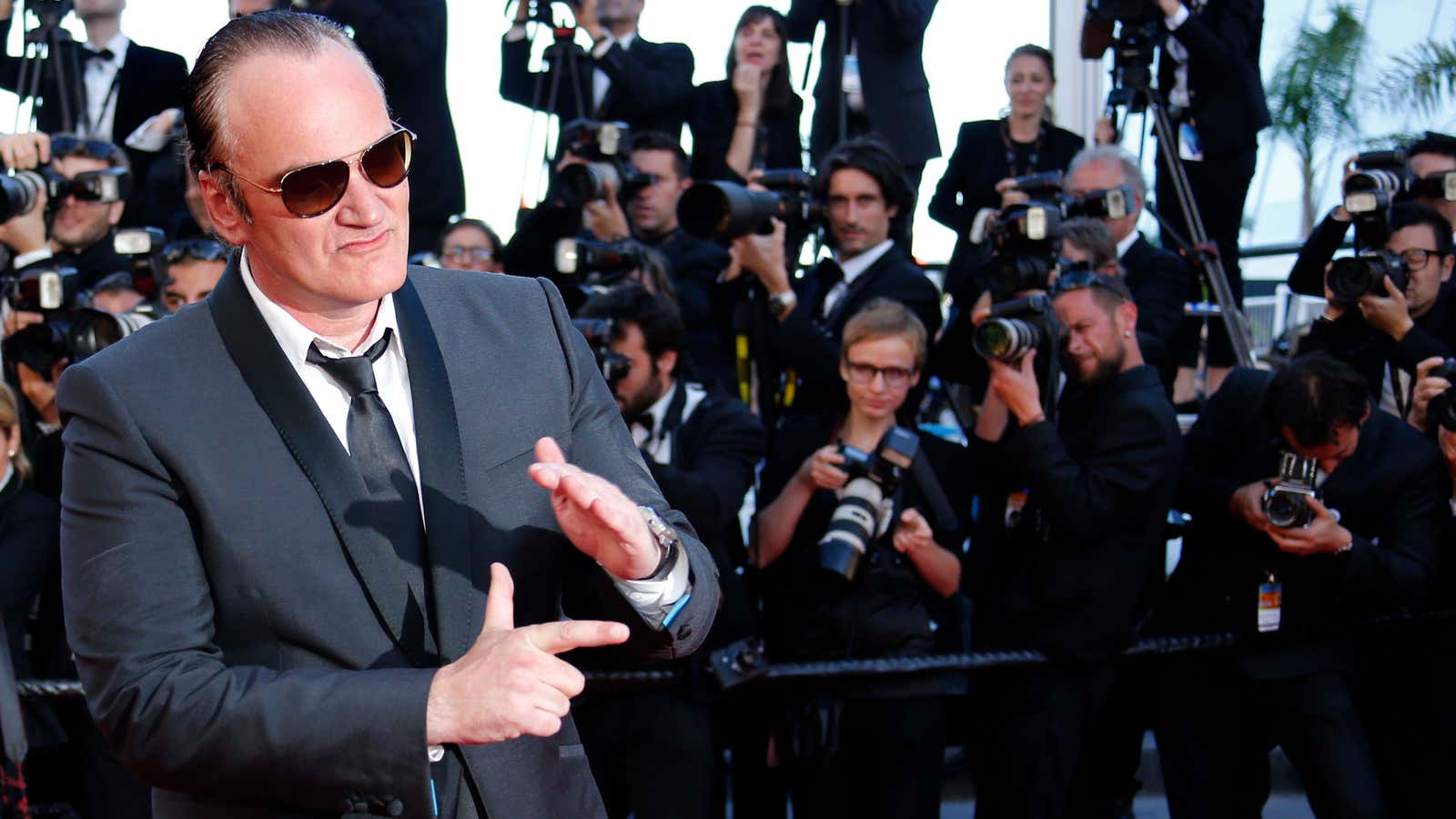“You wouldn’t think the color of a writer’s skin should have any effect on the words themselves.”
So Quentin Tarantino declared in a recent, wide-ranging interview with Brett Easton Ellis in The New York Times Style magazine. Tarantino’s last film, Django Unchained (2012) was about the evils of racism and slavery, so one would be forgiven for thinking the highly-acclaimed writer and director was using his Times interview to call for increased diversity in Hollywood here.
Unfortunately, he’s not. Rather, he’s railing against the discrimination he claims to face as a white filmmaker. Black critics, Tarantino says, have continuously attacked him with “savage think pieces” over his career because he is white.
And those attacks are so, so unfair.
This is not the first time Tarantino has claimed racially motivated bias. “As a writer, I demand the right to write any character in the world that I want to write,” Tarantino reportedly said back in 1997, responding to criticism by director Spike Lee of the film Jackie Brown. Indeed, it seems like every time Tarantino is criticized on topics relating to race, he tries to play the victim. White filmmakers, he insists, have the right to deal with black issues.
I doubt anyone would say that they don’t. But whether Tarantino has the “right” or not is beside the point. Tarantino has something better than the “right”—he has the power. Tarantino is a massively successful and lauded director. When he wants to make a film, he receives funding, promotion, and media hype, and A-list actors scramble to work with him.
Tarantino happens to be one of my favorite working directors, so I am happy that he is able to make movies. But the fact remains that white skin is not a barrier to funding or power in Hollywood. In fact, virtually every mainstream, high-profile Hollywood film about race has been made by a white guy. In the Heat of the Night (1967), Guess Who’s Coming to Dinner? (1967), Glory (1989), Driving Miss Daisy (1989) Amistad (1997), Crash (2004), Lincoln (2012). Of course there are exceptions—Spike Lee, Ava Duverny, and Steve McQueen have all made such films too—but it’s ludicrous to claim that white men like Tarantino have in any way been hindered from directing movies about black folks.
White hegemony in Hollywood isn’t Tarantino’s fault. But, given that it exists, “Did Tarantino use his power well” is a much better question than “is he allowed to do this?” as twitter user @dgstieber succinctly put it.
In his filmography, Tarantino can make a good case that he is committed to diversity, at least. He consistently casts actors of color in his films, giving them central, nuanced, and often starring roles. Pam Grier’s turn in Jackie Brown is a great example, as is Death Proof, which includes numerous complex and contrasting roles for women of color. I’m not a fan of Django Unchained, which stumbles into both “good darky” and white savior stereotypes. But the sight of a black man shooting his way through slaver masters is still, arguably, a welcome sight in a culture which too often demands that black people greet every abuse with nonviolence and forgiveness.
Offscreen, though, Tarantino’s record is a lot less admirable. He makes films which suggest he cares about racial injustice. But then he uses his interviews to whine about how hard it is for him as an incredibly famous white man when black critics don’t rubberstamp his every utterance. He could use his clout to promote the work of black directors, if he wanted. But he prefers to take to the pages of the New York Times to sneer at Ava DuVernay.
Adding insult to injury, Tarantino even boasts to Ellis about how much cultural space he takes up. “If you’ve made money being a critic in black culture in the last 20 years you have to deal with me.” Yep, white people’s representations of black people are really central and important and hard to avoid. That’s called white supremacy. Why should we be celebrating it, exactly?
